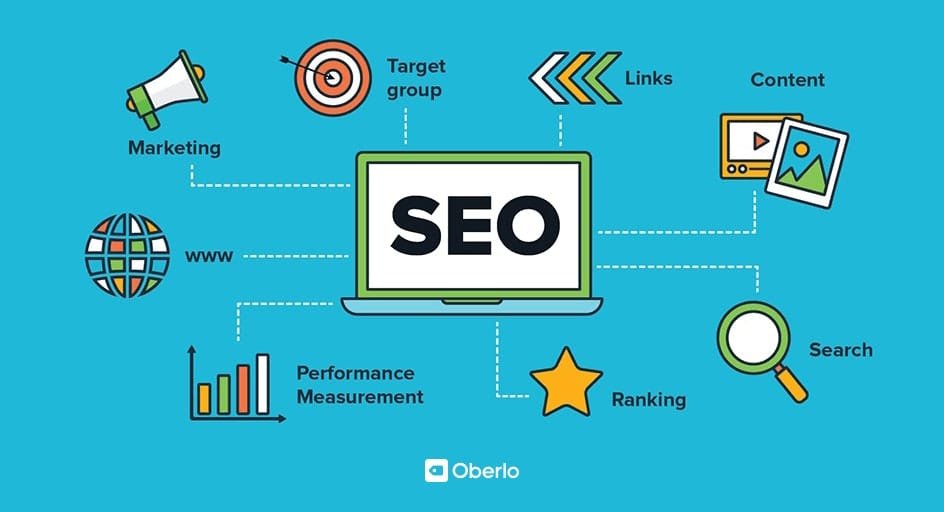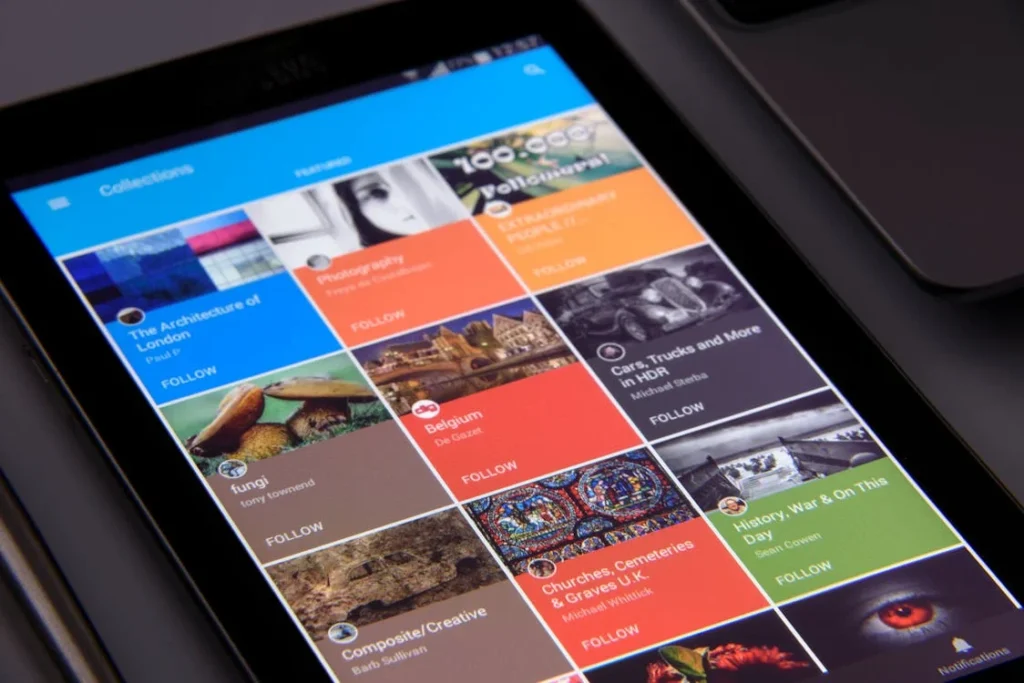(This Article has been revised, edited and added to, by Poulomi Chakraborty.)
In today’s digital age, the path to healthcare often begins with a simple online search. While global online reach is vital for many industries, healthcare providers often serve local communities. Here’s where the power of Local SEO comes into play. But what is Local SEO, and why is it so essential for healthcare providers? Let’s unravel the intricacies of Local SEO, its pivotal role in connecting healthcare providers with their local communities, and the foundational steps to harness its immense potential.
The Essence of Local SEO

Local SEO (Search Engine Optimization) is the practice of optimizing a website to increase traffic, leads, and brand visibility from local search. For healthcare providers, it means being the first name a local individual thinks of or finds when they’re in need.
- Search Engine Result Pages (SERPs): Local searches often result in a different set of SERPs, prominently featuring local businesses. These include the coveted “Local Pack” – a set of three highlighted businesses on Google.
- Proximity Matters: For urgent care clinics, dentists, physiotherapists, or any local healthcare service, proximity is often a significant deciding factor for patients.
- Building Local Trust: A robust local online presence can lead to increased trust within the community. Patients tend to trust local providers more due to the accessibility and personal touch they offer.
Understanding Local Search Behavior
A foundational step in leveraging Local SEO effectively is to deeply understand local search behavior. Healthcare startups must analyze how their target audience uses search engines to find local services. This involves identifying the specific search terms, questions, and concerns that potential patients are using. Armed with this knowledge, providers can tailor their online content, keywords, and SEO strategies to align with the actual search behaviors of their local community, enhancing relevance and visibility.
Strategic Website Localization
The heart of your Local SEO strategy is a localized website that resonates with your community. This goes beyond mere translation or mentioning the city name. Strategic website localization involves creating content that reflects local culture, addressing local health issues, and showcasing involvement with local events and initiatives. For healthcare startups, this means providing valuable health information tailored to the community’s needs, highlighting local team members, and sharing stories of local engagement and impact.
Advanced Geo-Targeting Techniques
To truly stand out in local search results, healthcare startups should employ advanced geo-targeting techniques. This includes using geo-specific keywords in a strategic manner across website content, meta tags, and URLs. Moreover, incorporating local landmarks, neighborhoods, and regional slang can further enhance the local relevance of your content. These tactics not only improve your visibility in local searches but also help potential patients feel a stronger connection to your practice, seeing it as an integral part of their community.
Leveraging Local Partnerships
Building relationships with other local businesses and organizations can significantly boost your Local SEO efforts. Collaborative events, shared content, or mutual promotions can lead to valuable local backlinks and citations, enhancing your online visibility and credibility. Moreover, these partnerships can open doors to community events and sponsorships, further embedding your healthcare startup within the local fabric. By strategically choosing partners with complementary services or shared audiences, you can amplify your reach and impact within the community.
The Power of Local Social Proof
In the healthcare sector, trust is paramount. Local SEO strategies must therefore include a strong focus on building and showcasing social proof. Encouraging patients to share their experiences through reviews and testimonials, and engaging with this feedback online, reinforces your credibility and reliability. Highlighting these reviews on your website and across social media platforms not only enhances your online reputation but also makes your healthcare service more relatable and trustworthy to potential local patients.
Continuous Local SEO Audit and Optimization
The digital landscape is ever-evolving, and so are the algorithms that determine local search rankings. A proactive approach to Local SEO involves regular audits of your online presence, from your website to your social media profiles and directory listings. This continuous optimization process should focus on ensuring accuracy, improving user experience, and updating content to reflect current local trends and health concerns. Utilizing analytics to track performance and adjust strategies accordingly is crucial for staying ahead in the competitive healthcare sector.
Claiming and Optimizing ‘Google My Business’

Google My Business (GMB) is a free tool from Google that allows businesses to manage their online presence across the search engine and its associated services.
- Claiming Your Listing: Before optimizing, ensure you’ve claimed your GMB listing. This process involves verifying that you are the rightful owner of the business and can manage its online information.
- Accuracy is Key: Ensure that all details, from the clinic’s name, address, phone number, to operational hours, are accurate. Regularly updating this information, especially during holidays or special occasions, is crucial.
- Gathering Reviews: Encourage satisfied patients to leave positive reviews on your GMB listing. Engage with these reviews, thanking patients for positive feedback and addressing any concerns raised.
Mastering the Art of GMB Profile Completeness
A complete GMB profile goes beyond the basics of name, address, and phone number. It’s about creating a comprehensive snapshot of your healthcare practice for potential patients. This involves detailed descriptions of your services, the addition of appointment links, and ensuring your profile is updated with the latest information regarding opening hours, services, and facilities. The completeness of your profile not only improves its attractiveness to potential patients but also signals to Google the reliability and thoroughness of your business information, potentially boosting your search ranking.
Utilizing GMB Posts to Engage and Inform
GMB posts are an underutilized tool that can significantly enhance your practice’s visibility and engagement. These short posts can be used to share health tips, announce new services or practitioners, and highlight community involvement. By regularly updating your GMB with fresh content, you not only keep your audience engaged but also demonstrate to Google that you are actively managing your online presence, which can favorably impact your search rankings.
The Strategic Use of Photos and Videos
Visual content in your GMB listing can profoundly affect user engagement and perception. Uploading high-quality, professional photos of your facility, staff, and happy patients (with their permission) can make your listing more appealing. Additionally, consider adding a virtual tour to give potential patients a feel for your clinic’s environment. Videos, especially those that introduce your staff or explain services, can further enrich your profile. This visual approach not only makes your listing more engaging but also aids in building trust with potential patients.
Encouraging and Managing Reviews Strategically
While the initial article touches on the importance of reviews, a strategic approach to managing reviews can set your practice apart. Encourage patients to leave detailed reviews that specify what they appreciated about their visit. When responding to reviews, personalized responses that address the reviewer by name and reference specific aspects of their feedback demonstrate that you value patient input and are actively engaged with your patient community. Handling negative reviews with professionalism and a commitment to resolve issues can also turn potential negatives into positives, showcasing your dedication to patient satisfaction.
Leveraging Q&A to Build Trust and Authority
The Q&A feature of your GMB listing is an often-overlooked opportunity to build trust and establish authority. By proactively populating it with frequently asked questions and answers, you can address common patient concerns before they even visit your clinic. Additionally, monitoring and promptly responding to new questions can further demonstrate your practice’s commitment to patient communication and transparency.
Advanced Insights for Informed Decision-Making
Google My Business provides a wealth of data about how users interact with your listing, from the number of views your photos get to how many people request directions to your clinic. By diving deep into these insights, you can make informed decisions about how to adjust your profile and strategy to better meet the needs of your target audience.
Moving Forward
Optimizing your Google My Business listing with these advanced strategies can significantly impact your healthcare practice’s local SEO performance. By ensuring profile completeness, engaging with your audience through posts, utilizing visual content, strategically managing reviews, leveraging the Q&A feature, and using GMB insights for informed decision-making, you can enhance your visibility, credibility, and patient trust. These efforts, while requiring regular attention and updates, can lead to a prominent position in local search results, driving more patients to your practice.
Localized Content Creation

Content remains king, even in the realm of Local SEO. However, the focus shifts toward creating content that resonates with the local audience.
- Geo-Specific Keywords: Incorporate terms that locals might use to search for services, such as “dentists in Dallas” or “Miami pediatric care.”
- Local Health Concerns: Address health concerns or topics that might be especially relevant to your local community. For instance, a healthcare provider in a coastal city might write about sunburn prevention.
- Engaging with Local Events: Participate in or write about local health fairs, community events, or workshops. This not only showcases community involvement but also establishes local relevance in content.
Crafting a Patient-Centric Content Strategy
At the heart of effective localized content creation lies a deep understanding of the patient’s journey. A patient-centric content strategy involves mapping out the various stages of a patient’s healthcare journey, from symptom research to post-treatment care, and developing content that addresses their concerns, questions, and needs at each stage. This approach ensures your content is not only localized but also highly relevant and valuable to your target audience, enhancing both engagement and SEO performance.
Leveraging Local Health Data for Tailored Content
Utilizing local health statistics and data can inform a more nuanced content strategy. By analyzing health trends, common conditions, and healthcare needs specific to your local area, you can create content that directly addresses the most pressing health concerns of your community. This could take the form of blog posts, infographics, or videos discussing these local health issues, prevention tips, and treatment options available at your facility. Such targeted content not only boosts your local SEO but also positions your practice as a thought leader and trusted healthcare provider in your community.
Developing Comprehensive Service and Condition Guides
For healthcare providers, developing in-depth guides on the services offered and conditions treated can significantly improve local SEO. These guides should be tailored to include local context, such as the prevalence of certain conditions in your area or specialized services your practice offers to meet local needs. Including patient testimonials, case studies, or success stories within these guides can add a personal touch and further enhance their effectiveness and appeal.
Interactive Local Health Resources
Creating interactive resources, such as local health event calendars, symptom checkers tailored to common local conditions, or maps showing health resources in the community, can significantly enhance user engagement. These resources provide tangible value to your audience, encouraging them to spend more time on your site and share your content, thereby increasing your site’s visibility and relevance in local search results.
Optimizing Content for Voice Search
With the rise of voice search, optimizing your localized content for this trend is crucial. This involves incorporating conversational phrases and questions that people are likely to use when speaking to digital assistants. Tailoring this content to include local references and language can further enhance its effectiveness in capturing local voice searches, which are often seeking immediate, local solutions for their healthcare queries.
Continuous Engagement Through Local Health Blogs
Maintaining a regularly updated blog that covers local health news, tips, and updates about your practice can keep your audience engaged and enhance your local search visibility. By covering topics that are currently affecting your community, such as health alerts, vaccination drives, or seasonal health tips, and incorporating local keywords, your blog can serve as a dynamic tool for local SEO and patient engagement.
Building Local Citations
Building local citations is an integral part of establishing a strong local SEO foundation for healthcare providers. This section delves into nuanced strategies to elevate your citation building efforts, focusing on quality, strategic partnerships, and leveraging local community engagement to solidify your presence in local search results.
Cultivating Strategic Local Partnerships
Forging partnerships with other local businesses and organizations offers a dual benefit of building your network and enhancing your local citations. Establish relationships with local fitness centers, health food stores, and community centers to create referral programs or co-host wellness events. These partnerships not only provide valuable backlinks but also increase your brand’s visibility and reputation within the local community.
Maximizing the Impact of Community Involvement
Active participation in community events, health fairs, and charitable activities is a potent method to build local citations. Ensure that your involvement is documented online through local news sites, community calendars, and event pages, which often link back to your website. Additionally, creating press releases for significant community involvement can lead to coverage by local media outlets, further expanding your web of local citations.
Harnessing the Power of Local Influencers and Bloggers
Collaborating with local influencers and health bloggers can amplify your local citation building efforts. Guest blogging on their sites or having them feature your healthcare services can lead to high-quality local citations. Furthermore, these collaborations often yield content that is highly shareable and relevant to your local audience, increasing your practice’s visibility and credibility.
Creating a Consistent NAPW Presence
Beyond the basic name, address, and phone number (NAP), including your website URL (hence NAPW) consistently across all platforms is crucial for local SEO. Audit your online presence to ensure that your practice’s details are uniform across directories, social media profiles, and industry-specific platforms. Discrepancies in your NAPW information can confuse search engines and potential patients, detracting from your local SEO efforts.
Engaging in Local Business Directories and Associations
Positioning your healthcare practice in local business directories and associations not only builds citations but also embeds your practice within the local business community. Prioritize directories that are relevant to healthcare and the local area, ensuring your profiles are comprehensive and up-to-date. Membership in local business associations often comes with online profiles that serve as authoritative citations, enhancing your local SEO.
Leveraging Educational and Governmental Resources
Contributing to local educational programs, health initiatives, or partnering with governmental agencies can lead to high-authority local citations. Offer your expertise for health education sessions, workshops, or public health campaigns, which can result in mentions on .edu and .gov sites—a gold standard in backlinks due to their high trust and authority levels.
Monitoring and Managing Your Citation Profile
An often overlooked aspect of citation building is the ongoing monitoring and management of your citation profile. Utilize tools designed for local citation management to track your presence across the web, identify any inconsistencies, and discover new opportunities for citations. Regular audits ensure the accuracy of your information across the web and can unveil untapped avenues for building citations.
Harnessing the Power of the ‘Local Pack’
Achieving visibility in the ‘Local Pack’ is a coveted goal for healthcare startups, as it significantly enhances local visibility and patient acquisition. This expanded section outlines advanced strategies for harnessing the full potential of the Local Pack, focusing on innovative and strategic actions beyond basic optimization, designed to elevate healthcare providers in local search results.
Crafting a Compelling Local Pack Profile
A compelling Local Pack profile goes beyond mere completeness; it requires a strategic approach to every element, ensuring it engages potential patients and encourages them to choose your healthcare practice. This involves not just listing services, but also showcasing what sets your practice apart. Whether it’s specialized services, patient care excellence, or community involvement, highlighting unique selling points directly in your Google My Business (GMB) listing can significantly impact your attractiveness within the Local Pack.
Enhancing Visibility Through Local Pack Features
Google continually updates the features available within GMB listings, and staying abreast of these changes can provide a competitive edge. Advanced features like Google Posts, Q&A, and direct messaging offer opportunities to engage with potential patients actively. Regularly utilizing these features can signal to Google the active management and relevance of your listing, potentially boosting your Local Pack presence.
Leveraging Local Pack Insights for Targeted Improvements
Google My Business provides valuable insights into how users interact with your listing, including search queries used to find your business, engagement metrics, and more. By analyzing these insights, you can identify areas for improvement, whether it’s optimizing your listing’s keywords based on actual search behavior or enhancing the types of photos and content that resonate most with your audience. This data-driven approach ensures your efforts are targeted and effective, maximizing your impact within the Local Pack.
Building a Reputation with Reviews
The quality and quantity of reviews have a profound effect on Local Pack rankings. Encouraging patients to leave detailed, positive reviews—and responding thoughtfully to each one—demonstrates to both Google and potential patients the quality of your care and your engagement with the community. Implementing a systematic approach to soliciting reviews post-appointment, and addressing any negative feedback promptly and professionally, can significantly enhance your online reputation and Local Pack standing.
Local Link Building for Local Pack Excellence
While often associated with broader SEO strategies, local link building is also crucial for Local Pack dominance. Securing backlinks from reputable local websites, such as community organizations, local news outlets, and other healthcare providers, can enhance your local search authority. Partnering with local events or sponsoring community initiatives can also generate natural backlinks, further strengthening your Local Pack position.
Utilizing Structured Data Markup
Structured data markup is a powerful tool that helps search engines understand the content of your website, including the local relevance of your services. Implementing schema markup for local businesses on your website can provide Google with detailed information about your healthcare practice, such as your services, reviews, and location details. This enhanced understanding can improve your visibility in the Local Pack, making it easier for potential patients to find and choose your practice.
Strategic Integration for Local Pack Dominance
Integrating these advanced strategies requires a comprehensive approach to local SEO, combining innovative use of GMB features, strategic analysis of Local Pack insights, reputation management through reviews, local link building, and the technical implementation of structured data markup. By focusing on these areas, healthcare startups can not only improve their visibility within the Local Pack but also significantly enhance their overall online presence and attractiveness to potential patients. This strategic integration ensures that every effort contributes towards dominating the Local Pack, ultimately leading to increased patient acquisition and community engagement.
Deepening Localized Content Strategy
Creating content that resonates with the local audience requires an understanding of the community and its nuances.
- Local Patient Testimonials: Sharing stories or testimonials from local patients can foster trust. Videos, in particular, can be highly impactful, putting a face and voice to the experiences.
- Geo-Specific Landing Pages: If your healthcare facility has multiple branches, create separate landing pages for each location, ensuring content and keywords are tailored to that specific region.
- Local Health Trends and Data: Sharing insights, perhaps in the form of infographics or articles, about local health trends can position you as a knowledgeable and involved community member. For instance, if a particular flu strain is prevalent, an article on prevention can be timely and relevant.
Cultivating a Community-Focused Content Approach
To truly resonate with a local audience, healthcare providers must pivot towards a community-focused content approach. This strategy involves creating content that addresses local health concerns, celebrates local health successes, and engages in local health discussions. By positioning your healthcare startup as an active participant in the local health conversation, you can build a deeper connection with your community, fostering trust and loyalty.
Integrating Local Stories and Voices
A powerful method to deepen your localized content strategy is to integrate local stories and voices into your content. This could involve featuring patient success stories, interviews with local healthcare professionals, or collaborations with local health influencers. Such content not only provides relatable and engaging material for your audience but also enhances your credibility and authority as a healthcare provider deeply embedded in the local community.
Utilizing Hyperlocal Keywords
While general local SEO practices emphasize the importance of geo-specific keywords, taking a hyperlocal approach can further refine your content strategy. This involves targeting even more specific locales within your primary service area—such as neighborhoods, districts, or landmarks. By incorporating hyperlocal keywords into your content, you can capture a more targeted audience segment, reducing competition and increasing visibility among those most likely to engage with your services.
Creating Local Health Guides and Resources
Developing comprehensive local health guides and resources can significantly enhance your localized content strategy. These guides could cover a range of topics, from navigating local healthcare services to preventive health tips tailored to local environmental conditions. By providing valuable, actionable information specific to your local area, you establish your healthcare startup as a go-to resource for health-related information in your community.
Leveraging Multimedia Content for Local Engagement
Expanding your content strategy to include a variety of multimedia formats can greatly increase engagement and reach. This includes creating local health podcasts, video tours of your facility, or interactive health quizzes. Multimedia content not only appeals to different preferences among your target audience but also increases the likelihood of shares and interactions, further amplifying your local presence.
Encouraging Community Participation
A truly localized content strategy involves not just speaking to your community but also inviting your community to speak with you. Encourage community participation through user-generated content campaigns, local health forums, or social media challenges. This engagement creates a sense of ownership and belonging among your audience, strengthening their connection to your brand.
Monitoring and Adapting to Local Health Trends
Staying attuned to local health trends and adapting your content strategy accordingly is crucial for maintaining relevance and authority. This involves regularly reviewing local health news, staying involved in community health initiatives, and updating your content to reflect the latest health concerns and developments. By being a proactive and responsive healthcare resource, you can ensure your content strategy remains aligned with the needs and interests of your local community.

Related: Check out our free SEO suite

Boosting Local Citations
Beyond just consistency in online mentions, there are ways to optimize and leverage local citations more effectively.
- Engaging with Local Bloggers or Influencers: Collaborate with local health bloggers or influencers for guest posts or joint events. Their mention, coupled with their local audience, can be a powerful citation source.
- Community Involvement: Sponsor local events or offer free community health check-ups. Such initiatives not only generate goodwill but often lead to mentions in local media or event websites.
- Monitoring Citations: Use tools like Moz Local or BrightLocal to track and monitor your citations. This ensures accuracy and can highlight opportunities for new, beneficial citations.
Cultivating a Robust Local Presence Online
Developing a strong online presence that transcends your own website is vital for healthcare providers. By strategically engaging in online platforms beyond the traditional directories, you can significantly boost your local citations. Participate actively in local online forums, health-related discussion boards, and social media groups that focus on health concerns in your community. Sharing expert advice, answering health queries, and contributing valuable content can lead to mentions of your practice, serving as indirect citations that bolster your local SEO efforts.
Strategic Content Collaboration
Content collaboration emerges as a powerful tool in enhancing your local citations. Forge partnerships with local health bloggers, news websites, and influencers to create content that addresses community health issues, provides expert insights, or showcases local health initiatives. These collaborations can result in quality backlinks and mentions that serve as strong signals to search engines about your relevance and authority in the local healthcare landscape.
Leveraging Local Events for Enhanced Visibility
Organizing or participating in local health events offers a twofold advantage. Firstly, it positions your healthcare startup as an active community participant, fostering goodwill and brand recognition. Secondly, it provides a rich source of local citations through event listings, local news coverage, and social media buzz. Ensure that your practice’s involvement is prominently featured in online event calendars, press releases, and local online community boards.
Mastering the Art of Local Public Relations
Public relations (PR) in the local context can be a game-changer for healthcare startups. Develop a local PR strategy that focuses on highlighting your startup’s contributions to community health, innovations in patient care, and participation in local health programs. Effective PR can lead to coverage in local media outlets, including newspapers, radio stations, and TV channels, each serving as a valuable citation source. Crafting press releases that celebrate milestones, community service, or patient success stories can captivate the interest of local journalists and bloggers, leading to increased visibility and citations.
Nurturing Professional Relationships Within the Local Healthcare Ecosystem
Building and nurturing relationships with other healthcare providers, local health clinics, and wellness centers can open up avenues for cross-promotion and referrals. Such partnerships can lead to shared content, mutual website mentions, and collaborative health initiatives, all of which are beneficial for local SEO. Additionally, engaging with local healthcare associations and participating in their activities can provide authoritative backlinks and citations, reinforcing your local presence.
Implementing a Local Citation Audit and Cleanup Strategy
Regular audits of your existing citations across the web are essential to ensure accuracy and consistency of your practice’s information. Use citation audit tools to identify inaccuracies, duplicates, or missing citations on key directories and platforms. Implementing a cleanup and optimization strategy for your citations can dramatically improve your local SEO performance, making it easier for patients to find and trust your healthcare practice.
A Strategic Approach to Local Citations
Enhancing local citations requires a multifaceted approach that goes beyond simply listing your healthcare startup on directories. By engaging with the community, collaborating on content, leveraging local events, mastering local PR, and nurturing professional relationships, you can significantly improve your local SEO. This strategic effort not only boosts your visibility in local search results but also establishes your startup as a trusted and integral part of the local healthcare ecosystem. Continuous monitoring and optimization of your citations ensure that your practice remains prominent and preferred among local patients seeking healthcare services.
On-Page SEO Elements for Local Optimization
While off-page factors like citations are vital, on-page elements remain the foundation of local SEO.
- Meta Tags and Descriptions: Ensure that your title tags, meta descriptions, and headers incorporate geo-specific keywords. For example, “Family Dentistry in Denver: Comprehensive Dental Care.”
- Embed Maps: Embedding Google Maps on your contact page or location-specific landing pages can enhance user experience and reinforce locality.
- Localized Schema Markup: Implementing schema markup specific to your location and services can provide search engines with detailed information about your business, enhancing the richness of search results.
Developing a Comprehensive Content Strategy
A well-crafted content strategy is essential for engaging your local audience and improving search engine visibility. Focus on creating content that addresses the specific needs, questions, and concerns of your local community. This involves in-depth research to understand the health issues prevalent in your area, the types of healthcare information sought by the community, and the local dialects or terminology used in search queries. Your content should not only be informative and authoritative but also resonate on a personal level with your local audience.
Emphasizing E-A-T Principles
For healthcare websites, Google places a strong emphasis on Expertise, Authoritativeness, and Trustworthiness (E-A-T). Enhance these elements by including author bios for blog posts that highlight the medical credentials of your writers, creating detailed service pages that outline the qualifications and experience of your healthcare professionals, and providing clear, evidence-based answers to common health questions. Incorporating authoritative links to reputable medical research or institutions can further bolster your site’s credibility.
Optimizing for Local Intent
Understanding and catering to local search intent is crucial. When potential patients search for healthcare services, they are often seeking specific information such as services offered, location details, and patient reviews. Ensure your website’s content explicitly answers these queries. Include location-based keywords in strategic parts of your website, such as H1 tags, meta descriptions, and within the content itself. Incorporating local landmarks, community events, or well-known health issues can also enhance the local relevance of your content.
Enhancing User Experience
The user experience on your website plays a significant role in your on-page SEO performance. Fast loading times, mobile optimization, and intuitive navigation are essential components that contribute to a positive user experience. Google’s Page Experience signals, including Core Web Vitals, should be a key focus in your website’s design and ongoing maintenance. A website that loads quickly, is easy to navigate, and provides immediate access to important information like contact details and service offerings will likely rank higher in local search results.
Implementing Local Structured Data Markup
Structured data markup is a powerful tool for telling search engines exactly what your content is about. For healthcare providers, using schema.org markup for local businesses, healthcare services, and reviews can help search engines understand and index your site more effectively. This can lead to richer search results featuring snippets, FAQs, and star ratings that attract more clicks from potential patients.
Fostering Engagement and Interaction
Engage your visitors by inviting them to interact with your content. Implement features like online appointment booking, chatbots for immediate inquiries, or forums for health discussions. These features not only improve the user experience but also increase the time spent on your site, a positive signal to search engines. Encourage patients to leave reviews directly on your site in addition to third-party platforms like Google My Business. Responding to comments and reviews shows an active commitment to patient satisfaction and community engagement.
Elevating Local SEO Through Strategic On-Page Optimization
On-page SEO for healthcare providers is not just about optimizing for search engines; it’s about creating a seamless, informative, and engaging online experience for potential patients. By developing a content strategy that addresses local needs, emphasizing E-A-T, optimizing for local search intent, enhancing the user experience, implementing structured data, and fostering online engagement, healthcare startups can significantly improve their visibility and attractiveness in local search results. Continuous evaluation and refinement of these strategies are key to maintaining a competitive edge in the dynamic landscape of local SEO.
Online Reviews: The Digital Word-of-Mouth

In healthcare, trust is paramount. Online reviews serve as the modern word-of-mouth, significantly influencing choices.
- Actively Solicit Reviews: While maintaining ethical considerations, encourage satisfied patients to share their experiences online, whether on GMB, Yelp, or healthcare-specific platforms like Healthgrades.
- Engage with Reviews: Thank patients for positive reviews. For negative feedback, respond empathetically and professionally, addressing concerns and showcasing a commitment to improvement.
- Showcase Reviews on Your Site: Integrating a review widget or creating a dedicated testimonial page can amplify the trust signals to site visitors.
Cultivating a Culture of Patient Feedback
Establishing a proactive approach to gathering patient feedback is foundational. Beyond simply soliciting reviews, healthcare providers should aim to create an environment where feedback is actively encouraged and valued. This involves training staff to understand the importance of patient reviews and to engage with patients in a manner that naturally leads to positive reviews. For instance, follow-up communications post-appointment can include personalized messages expressing gratitude for the patient’s visit and gently reminding them of the value of sharing their experience online.
Leveraging Technology for Review Collection
Incorporate technology solutions that streamline the process of review collection. Automated systems can send timely reminders to patients via email or SMS, linking directly to platforms where their feedback can be submitted. These systems can be integrated with your patient management software to trigger review requests following appointments, ensuring a consistent approach to gathering feedback across your patient base.
Strategic Response to Reviews
The manner in which your healthcare startup responds to online reviews, both positive and negative, can significantly influence public perception.
Positive Review Acknowledgment
Every positive review presents an opportunity to reinforce your brand’s positive attributes. Responding with personalized messages that thank the patient for their feedback and highlight your commitment to their wellbeing can amplify the positive impact of the review. Such responses not only show appreciation but also encourage others to share their experiences.
Transforming Negative Reviews into Opportunities
Negative reviews, when handled correctly, can offer valuable insights into areas for improvement and demonstrate your commitment to patient satisfaction. A strategic approach involves acknowledging the feedback promptly, offering an empathetic and professional response, and where appropriate, taking the conversation offline to resolve the issue. This demonstrates to current and prospective patients that your practice values their feedback and is committed to continuous improvement.
Showcasing Reviews Across Digital Platforms
Do not limit the visibility of positive reviews to the platforms they were posted on. Highlighting selected reviews on your website, in social media posts, and even in email newsletters can broaden their impact. Featuring patient stories or testimonials can particularly resonate with potential patients, offering them relatable narratives that showcase the quality of care your practice provides.
Making Reviews a Part of Your Local SEO Strategy
Integrate reviews into your local SEO strategy by optimizing your website and social media profiles to showcase these testimonials prominently. This can include dedicated sections for reviews on your homepage, creating blog posts that highlight patient stories, or featuring reviews in sidebar widgets across your site. Such integration not only enhances your site’s content but also leverages the SEO benefits of fresh, unique, and regularly updated content.
Harnessing the Power of Video Reviews
Video testimonials are a powerful medium to convey patient satisfaction and the quality of care provided. Encourage willing patients to share their stories in video format, ensuring to obtain the necessary permissions and releases. These videos can be featured on your website, social media channels, and YouTube, offering a dynamic and engaging way to present reviews that can significantly enhance trust and engagement.
A Strategic Approach to Online Reviews
Online reviews are a potent tool in the arsenal of local SEO strategies for healthcare providers. By fostering a culture of feedback, leveraging technology for efficient review collection, strategically responding to all reviews, showcasing testimonials across your digital presence, and exploring dynamic formats like video, healthcare startups can harness the full power of digital word-of-mouth. This strategic approach not only boosts local SEO performance but also builds a strong foundation of trust and credibility within the local community. Continuous engagement with and analysis of patient reviews will ensure your healthcare practice remains responsive, relevant, and respected in an increasingly competitive landscape.
The Importance of Mobile Optimization in Local SEO
The smartphone has become an indispensable tool for seeking healthcare information. Local searches often originate from mobile devices, emphasizing the necessity of a mobile-optimized website.
- Responsive Design: Ensure your healthcare website adjusts seamlessly to various screen sizes, offering a consistent user experience across devices.
- Speed Optimization: Mobile users expect swift page loads. Use tools like Google’s PageSpeed Insights to assess and improve your mobile site’s speed.
- Easy Navigation: Simplified menus, clickable phone numbers, and intuitive design can facilitate smoother user interactions on mobile devices.
Understanding Mobile User Behavior
Before diving into technical optimizations, it’s essential to understand the behavior and expectations of mobile users. These users are often seeking quick answers, looking for local services, or trying to make appointments on-the-go. Their patience for slow-loading pages or cumbersome navigation is minimal. Therefore, tailoring your mobile experience to these behaviors and expectations is the first step toward a successful mobile strategy.
Crafting a Mobile-First Content Strategy
Given the limited screen size on mobile devices, content must be concise yet informative. Adopt a mobile-first content strategy that prioritizes key information at the top of pages, uses bullet points for easy scanning, and incorporates clickable phone numbers for immediate calls to action. Ensure that forms are simplified and easy to complete on mobile devices, making the appointment booking process as straightforward as possible.
Technical Enhancements for Mobile Optimization
Accelerating Page Load Speed
Page load speed is a critical factor in mobile user experience and, consequently, SEO performance. Utilize tools like Google’s PageSpeed Insights to identify specific areas for improvement. Techniques such as image compression, browser caching, and minimizing code can significantly reduce load times. Additionally, consider implementing Accelerated Mobile Pages (AMP) for critical content, such as blog posts or service descriptions, to provide an ultra-fast loading experience.
Responsive Design Implementation
A responsive website automatically adjusts its layout and content to fit the screen size of the device being used. This ensures that your website is easily navigable and readable without the need for zooming or horizontal scrolling, providing an optimal user experience across all devices. Responsive design is not only favored by users but also by search engines, which often prioritize mobile-friendly websites in search results.
Enhancing Local Discoverability on Mobile
To maximize your visibility in local searches performed on mobile devices, ensure your local SEO elements are prominently featured and easily accessible. This includes clear display of your practice’s name, address, and phone number (NAP), integration of Google Maps for easy location finding, and the use of local schema markup to enhance search engine understanding and display of your practice’s details in search results.
Leveraging Mobile Features for Engagement
Mobile devices offer unique features that can enhance user engagement and conversion rates. Encourage users to save your contact information directly to their devices with a simple tap. Implement click-to-call functionality for all phone numbers listed on your site, and consider adding a chatbot or live chat feature to answer patient inquiries in real time. These features not only improve the user experience but also facilitate immediate actions, driving conversions and patient appointments.
Monitoring and Adapting to Mobile User Behavior
Continuous monitoring of mobile user engagement metrics is essential to understand how effectively your mobile site meets user needs. Utilize analytics tools to track metrics such as mobile session duration, bounce rate, and conversion rate. Regularly updating and refining your mobile strategy based on these insights will ensure your healthcare startup remains competitive and responsive to the evolving behaviors of mobile users.
Prioritizing Mobile for Local SEO Success
Mobile optimization is a cornerstone of modern local SEO strategy for healthcare providers. By understanding mobile user behavior, implementing technical enhancements, enhancing local discoverability, leveraging mobile features for engagement, and continuously monitoring user interactions, healthcare startups can significantly improve their visibility and attractiveness in local search results. A mobile-optimized website not only meets the expectations of today’s mobile-centric users but also aligns with search engines’ prioritization of mobile-friendly websites, driving higher local search rankings and attracting more patients to your practice.
Backlink Strategy for Local SEO

Backlinks, or incoming links from external websites, are a strong ranking signal. In the context of local SEO, the source of these links can make a significant difference.
- Local Partnerships: Collaborate with local businesses or organizations, perhaps through events or joint initiatives, leading to natural backlink opportunities.
- Guest Posting on Local Blogs: Contribute content to reputable local blogs or news sites. Not only does this position you as an authority, but it also creates quality local backlinks.
- Local Directories: Beyond general directories, there are often region-specific directories or associations. Ensuring you’re listed here can provide both direct traffic and valuable local backlinks.
Building Relationships for Backlink Success
Cultivating meaningful relationships with local businesses, healthcare professionals, and community organizations is the foundation of a successful backlink strategy. These relationships can lead to natural backlink opportunities that are highly valued by search engines for their relevance and authenticity.
Partnering with Local Healthcare Institutions
Forge partnerships with local hospitals, clinics, and wellness centers for collaborative health initiatives or community health events. These partnerships can result in your website being linked from these institutions’ websites, which are often authoritative and trusted sources in the eyes of search engines.
Engaging with Local Media
Local media outlets are always in search of authoritative voices to comment on health-related stories, provide expert opinions, or contribute guest articles. Establishing yourself as a go-to expert for healthcare information can lead to valuable backlinks from news sites, local magazines, and online publications, all of which can significantly enhance your local SEO.
Leveraging Community Engagement for Backlinks
Active participation in community events not only builds your brand’s reputation but also offers backlink opportunities. Sponsor local health fairs, charity runs, or wellness workshops, and ensure your involvement is featured on the event’s website and in local media coverage.
Creating Shareable Community Health Resources
Developing valuable resources such as local health guides, wellness tips tailored to your community, or informative health infographics encourages local businesses and community groups to share your content—and link to it. These resources can become a cornerstone of your backlink strategy, attracting links naturally over time.
Harnessing the Power of Educational Content
Educational content, particularly when it addresses specific health concerns relevant to your local community, can be a powerful tool for earning backlinks.
Collaborating with Educational Institutions
Partner with local schools, colleges, and universities to offer workshops, seminars, or guest lectures on health topics. These institutions may link to your website as a resource for students and faculty, providing a valuable backlink.
Creating Health Education Series
Launch an online health education series, such as webinars or live Q&A sessions, covering topics of local interest or concern. Promote these events in collaboration with local partners, who may link to your site as part of their promotion.
Optimizing Local Directory Submissions
While listing your healthcare practice in local directories is a fundamental step, optimizing these listings can further enhance their value as backlink sources. Ensure your profiles are comprehensive, up-to-date, and include a direct link to your website. Prioritize directories that are specifically related to healthcare and those that have a strong presence in your local area.
Analyzing and Refining Your Backlink Strategy
Continuously monitor the quality and impact of your backlinks using SEO tools that provide insights into your link profile. Identify which types of content and partnerships are generating the most valuable backlinks and adjust your strategy accordingly to maximize its effectiveness.
Strategic Backlink Building for Local SEO Excellence
A strategic approach to backlink building goes beyond mere acquisition, focusing on cultivating relationships, engaging with the community, providing valuable educational content, and optimizing directory submissions. By implementing these advanced strategies, healthcare startups can significantly enhance their local SEO, improving their visibility in local search results and establishing their practice as an authoritative and trusted resource in the community. Continuous analysis and refinement of your backlink strategy will ensure sustained success in your local SEO efforts.
Concluding Thoughts: The Synergy of Locale and Healthcare
The intricate relationship between locale and healthcare is undeniable in the digital age. Local SEO is not just a strategy; it’s a fundamental bridge connecting healthcare providers to their communities. As healthcare startups navigate the complexities of local SEO, the focus should remain on creating meaningful, local connections. This involves understanding and addressing the specific needs of your community, engaging authentically with local audiences, and leveraging the power of digital tools to enhance visibility and trust.
In this journey, the synergy between local insights and healthcare expertise becomes your greatest asset. By employing strategic local SEO practices—ranging from optimized on-page content and targeted backlink strategies to the effective use of reviews and mobile optimization—healthcare providers can ensure they are not just seen, but chosen by their local communities.
Ultimately, the goal is to establish a robust online presence that reflects the quality, reliability, and community-oriented nature of your healthcare services. Embrace the unique opportunity to make a difference in your local healthcare landscape, driving both digital and real-world impact through the thoughtful application of local SEO strategies.
READ NEXT:
- How to Register a Limited Liability Partnership (LLP) in India
- How to Draft an Agreement or a Contract: All You Need to Consider
- Why You Need to be Concerned About Copyright Law: Indian Edition
- Backlink Gap Analysis for Travel Websites’ SEO Strategies
- Select High-Quality vs. Low-Quality Backlinks: How to Differentiate



















